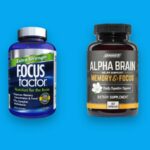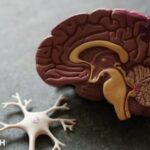
Table of Contents
Introduction
As students, we are always looking for ways to improve our performance in school. One option that has gained popularity in recent years is the use of nootropics. Nootropics are supplements or drugs that are believed to enhance cognitive function, memory, creativity, and motivation. In this article, we will explore whether nootropics can actually help with studying.
What are nootropics?
Nootropics, also known as cognitive enhancers or smart drugs, are substances that are designed to improve cognitive function. They can be natural or synthetic and come in various forms, such as pills, powders, and drinks. Nootropics are believed to work by increasing blood flow to the brain, improving the communication between brain cells, and stimulating the release of neurotransmitters.
How do nootropics work?
Nootropics work by affecting various neurotransmitters in the brain. For example, some nootropics increase the production of dopamine, which is associated with motivation and pleasure. Others enhance the activity of acetylcholine, which is involved in learning and memory. By increasing the levels or activity of these neurotransmitters, nootropics are believed to enhance cognitive function and improve memory, attention, and focus.
The benefits of using nootropics for studying
There are several benefits to using nootropics for studying, including:
Improved focus and concentration
One of the most significant benefits of using nootropics for studying is the ability to improve focus and concentration. By increasing the activity of neurotransmitters such as dopamine and norepinephrine, nootropics can help students stay alert and focused for longer periods of time.
Increased memory retention
Another benefit of using nootropics for studying is improved memory retention. By enhancing the activity of acetylcholine and other neurotransmitters involved in memory, nootropics can help students retain information more effectively.
Enhanced cognitive performance
Finally, nootropics are believed to enhance cognitive performance overall. By increasing blood flow to the brain and improving communication between brain cells, nootropics can help students process information more quickly and efficiently.
Popular nootropics for studying
There are several popular nootropics that are believed to be effective for studying, including:
Modafinil
Modafinil is a prescription drug that is used to treat narcolepsy and other sleep disorders. It is also popular as a cognitive enhancer and is believed to improve focus, motivation, and productivity.
Piracetam
Piracetam is a natural nootropic that is believed to improve memory and cognitive function. It is often used by students to enhance learning and memory retention.
Noopept
Noopept is a synthetic nootropic that is believed to enhance cognitive function, improve memory, and increase focus and motivation. It is also known to have a neuroprotective effect, which can help protect the brain from damage and improve overall brain health.
Alpha-GPC
Alpha-GPC is a natural nootropic that is believed to improve memory, cognitive function, and focus. It is often used by students to enhance learning and retention.
Phenylpiracetam
Phenylpiracetam is a synthetic nootropic that is believed to improve cognitive function, memory, and focus. It is also known to have a stimulant effect, which can help increase alertness and productivity.
Potential side effects of using nootropics
While nootropics are generally considered safe, they do come with some potential side effects. Some of the most common side effects of using nootropics for studying include:
Insomnia
Some nootropics, particularly stimulants, can interfere with sleep and cause insomnia. This can be particularly problematic for students who need to be well-rested in order to perform well in school.
Headaches
Another common side effect of using nootropics is headaches. This can be caused by changes in blood flow to the brain or by dehydration.
Anxiety
Some nootropics, particularly those that affect neurotransmitters like dopamine and norepinephrine, can cause anxiety or jitteriness.
Nausea
Finally, some people may experience nausea or digestive issues when taking nootropics. This can be caused by the active ingredients in the nootropics or by other factors, such as taking the supplements on an empty stomach.
How to use nootropics for studying safely
If you are interested in using nootropics for studying, it is important to do so safely. Here are some tips for using nootropics safely:
Start with a low dose
Start with a low dose of the nootropic you are interested in trying and gradually increase the dose as needed. This will help you avoid any potential side effects and allow you to gauge the effectiveness of the supplement.
Take breaks
It is important to take breaks from using nootropics to avoid building up a tolerance to the supplements. This can also help reduce the risk of side effects.
Stay hydrated
Drink plenty of water when taking nootropics to avoid dehydration and potential headaches.
Avoid mixing with other substances
Avoid mixing nootropics with other substances, such as alcohol or caffeine, as this can increase the risk of side effects.
Conclusion
In conclusion, nootropics have the potential to help students improve their cognitive function and enhance their studying efforts. While there are potential side effects, if used safely and responsibly, nootropics can be a helpful tool for students looking to improve their academic performance.
FAQs
Can I become addicted to nootropics?
While nootropics are generally considered safe and non-addictive, some people may become dependent on them or experience withdrawal symptoms when stopping their use.
Can nootropics replace good study habits?
No, nootropics should be used in conjunction with good study habits, such as getting enough sleep, eating a healthy diet, and engaging in regular exercise.
Do I need to consult a doctor before using nootropics?
While nootropics are generally safe, it is always a good idea to consult with a doctor before using any new supplement, especially if you have any underlying health conditions.








